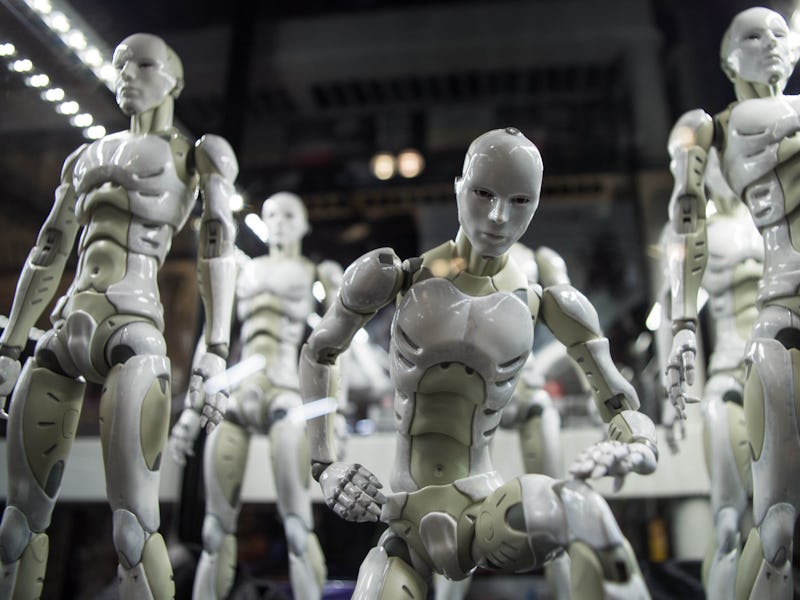How Did Volkswagen Let a Robot Crush a Man to Death?
Human error figured heavily into a gruesome accident.

It’s a familiar scene: a robot, losing control, turns on its human and crushes him to death. In fact, it happens so often in movies that when it happens in real life, we don’t know how to process it. It’s scary to admit, but scenes like it are becoming a part of our reality. A fresh incident happened on Monday, when a German contractor at a Volkswagen production plant was killed by a robot as he was setting it up.
The 22-year-old was setting up the robot, which is designed to grab auto parts and manipulate them, when it suddenly grabbed him and crushed him against a metal plate. He later died from his injuries.
According to Volkswagen’s spokesperson, the accident was due to human error rather than a problem with the robot. It doesn’t seem like the robot was anything other than an ordinary assembly-line worker, at least according to the company’s brief description. What makes this really interesting, however, is the fact that this robot was designed to be kept in a cage. The young man was actually in the cage with the robot when he was attacked.
Volkswagen is going to have to deal with a lot of questions in the coming weeks. Robots in many production plants are kept in cages to prevent them from accidentally harming humans. This robot was no exception. Shouldn’t there be a special set of safety precautions for people knowing they’d have to be inside the cage? Was there a way for the young man to know that the robot would become active? We can keep pointing our fingers at the policymakers and safety officers, but there is one other potential culprit: the robot itself. If the malfunction wasn’t due to faulty programming or machinery, then who’s to blame?
Prosecutors are considering pressing charges, but what they’re trying to figure out is who to press them against. These days, skepticism and fear about robots and AI are on the rise, especially as Google’s robot army, Uber’s fleet of self-driving cars, and Terminator: Genisys both celebrate and merge with science fiction.
Creating robots with AI might be the greatest thing humans ever achieve, Stephen Hawking famously said last year, adding, “Unfortunately, it might also be the last, unless we learn how to avoid the risks.” A gruesome accident has underscored how much we have yet to learn.